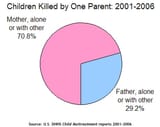>>22902780
God's thinking isn't sequential or discursive. Human thinking involves process (we gather data, analyze and reach conclusions)
in classical Christian theology, God's knowledge is immediate and eternal. He doesn't "figure things out" He knows all things instantly and perfectly.
so yes, God "thinks" in the sense that He knows, wills, and acts with purpose, but not in a way that involves uncertainty, learning, or deliberation.
TAG argues that rationality, logic, and intelligibility are only possible because they reflect the nature of the triune God. so when we think, we're mirroring God's rationa nature in a finite way.
to say "God doesn't think" would be misleading in this framework, it's more accurate to say "God is the foundation of all thought, and His "thinking" is qualitatively different from ours.
The question sort of assumes God is just a bigger version of us, a "super subject." but in Christian theology, God is qualitatively distinct from creation. His "mind" isn't a brain, and His "thoughts" aren't time-bound.
>>22902787
>And if God doesn't think how did he go from knowing he hadn't yet created the universe to knowing he had created the universe.
God is eternal, meaning He exists outside of time. Time itself is part of the created order.
God doesn't "go from" one state of knowledge to another. There is no "before" and "after" in God's being.
When God creates the universe, time begins. but that doesn't mean God's knowledge changes. from our perspective, there's a "moment" when the universe begins, but from God's perspective He eternally knows Himself as Creator of a temporal world.
your question assumes a framework of time, change, and causality, which only make sense if the Christian God exists.
 7/5/2025, 2:51:57 PM
No.22902136
[Report]
>>22902137
>>22902139
>>22902140
>>22902143
>>22902144
>>22902146
>>22902147
>>22902148
>>22902150
>>22902155
>>22902158
>>22902160
>>22902175
>>22902177
>>22902185
>>22902199
>>22902202
>>22902221
>>22902224
>>22902748
>>22904770
7/5/2025, 2:51:57 PM
No.22902136
[Report]
>>22902137
>>22902139
>>22902140
>>22902143
>>22902144
>>22902146
>>22902147
>>22902148
>>22902150
>>22902155
>>22902158
>>22902160
>>22902175
>>22902177
>>22902185
>>22902199
>>22902202
>>22902221
>>22902224
>>22902748
>>22904770























